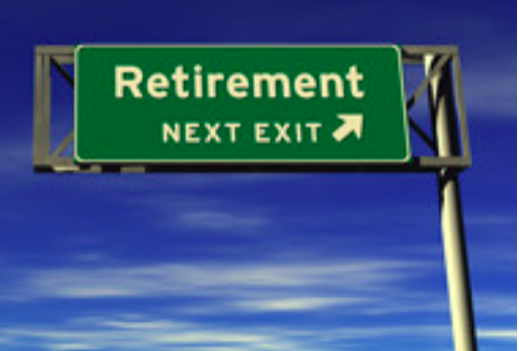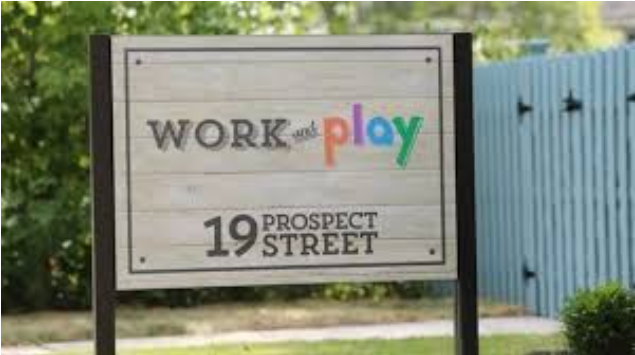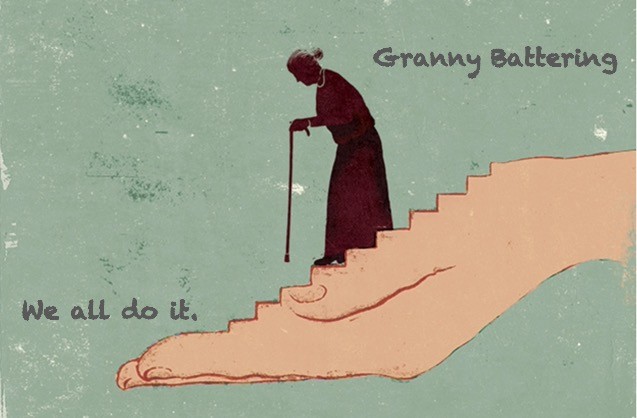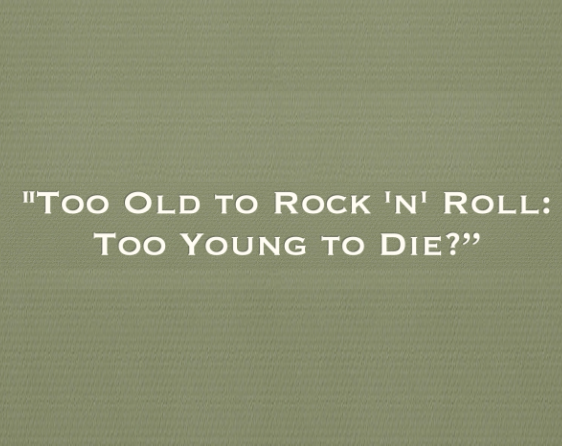Blog

Retirement – The lies we tell
Written by Luke Thomas
Retirement is stressful.
Picture your golden years traveling the world, finally able to laugh and linger, with family and friends, cocktails at an outside table set out in the rosy haze of cascading dusk and roses, eating and laughing into the wee hours.
Few take the time to ponder why such romantic visions always seem beyond reach. That is the point. It is romantic precisely because it is unattainable, or rare. What lends the myth wings is that other maxim; “the grass is always greener on the other side”. If familiarity didn’t at least induce a sigh of “been there, done that”, you would recall that it breeds contempt.
The fault is not that the retirement industry has sold the dream of “golden years” spent pursuing long-denied creative past-times like painting, golfing or gardening, evening garden parties or simply the right to relax and watch Netflix all day; the reward of years of toil. The fault is that it has been painted as the goal.
Initially, escaping the daily grind and commute, workplace politics or a difficult boss can seem like a hard earned prize, but only if your job was physically draining, unfulfilling, or left you feeling burned out. But many find work gratifying and build some of their social life around work.
For them retirement presents sterner challenges….when reality bites.
New retirees often find that the shine wears off that “permanent holiday” after a few months. The loss of identity, purpose and social value that working life bestowed, together with structured days and social exchanges with co-workers, can be surprisingly devastating.
Instead of carefree freedom and fulfilment, retirees are often bored, rudderless and lonely. There’s grief for the loss of the old life, stress about how to fill the days and the toll on the relationship with spouse or partner, of being at home all day. Watching children and neighbours go off to work often induces another gut-wrench of envy in some retirees, left to dwell on worth and irrelevance. It is a little-known fact that some even feel guilty about receiving money from their pensions, without having laboured for it. Not surprising then that some retirement newbies fall into anxiety and depression.
This takes us on a natural segue to the increased costs of healthcare in retirement. Absent the natural activity of going to work, the body loses another reason to get up and move around. These last two years of Covid-19 lockdowns should be ample proof of the outcomes.
A Harvard study found that physical activity later in life shifts energy away from processes that can compromise health and toward mechanisms in the body that extend it. They hypothesize that humans evolved to remain physically active as they age — and in doing so, allocate energy to physiological processes that slow the body’s gradual deterioration over the years. This guards against chronic illnesses such as cardiovascular disease, Type 2 diabetes, and even some cancers. “The key take-home point is that because we evolved to be active throughout our lives, our bodies need physical activity to age well. In the past, daily physical activity was necessary in order to survive, but today we have to choose to exercise, that is to do voluntary physical activity for the sake of health and fitness,” said Harvard evolutionary biologist Daniel E. Lieberman, the paper’s lead author.
Am I making too much of a meal of this?
Confirmation of retirement as a health hazard comes from researchers at the Harvard School of Public Health. They looked at rates of heart attack and stroke among men and women in the U.S. Health and Retirement Study. Among 5,422 individuals in the study, those who had retired were 40% more likely to have had a heart attack or stroke than those who were still working. The increase was pronounced during the first year after retirement, and levelled off after that.
What is the ideal age for retirement? Never, answers Daniel J Levitin, a neuroscientist.
After all that, let’s discuss money. The siren call of the retirement dream that the industry paints requires money - to finance the travel, entertainment and comforts, ignoring health costs for a moment.
I’d be the first to argue that saving, as a rampart against unfortunate future outcomes, is wise at any age but no one should fall for the romance of a work-free retirement. It is rarely affordable, or wise.
How many could have worked 35 years, bought a home and raised children while putting away enough for 25 years of retirement in the style those dreams promise? What savings many parents have is locked into the value of their homes. To pile on, consider the so-called “boomerang” phenomenon – young adults are returning to their parents’ home until well into their 20s or 30s. According to the Guardian, research has found nearly two-thirds of childless single adults aged 20-34 have either never left or have moved back into the family home because a combination of a precarious job market, low wages, sky-high private sector rents and soaring property prices put dreams of independence and owning their own homes out of reach. Who can afford those retirement dreams in the face of those?
Some dream. Loss of identity, boredom, isolation and money stress is the reality for most people – those who were not bankers or make fortunes in business, the markets or the property sector. We need a new dream.
Sequenting
Enter sequenting. An alternative dream, perhaps less beguiling, is to sequent into a phase of life where work and leisure are not mutually exclusive. Those aspirations of long dusky evenings and time for hobbies, grandchildren and friends can and should be fulfilled, but remain enough of an occasion to continue to look forward to.
Leisure breaks interspersed with the pace of work you choose. That’s sequenting.
Thus, easing into retirement becomes a more gradual, and drawn out, transition; by incrementally reducing the hours you work in an existing job, if you have that kind of employer, or work for yourself in some capacity, full-time or doing part-time jobs.
As well as providing purpose, part-time employment can also supplement your income, keep you socially engaged, and ease the adjustment to retirement without having to endure the downsides of full-time work. You can also use your sequent to gauge how well you can live on the savings you’ve allocated to retirement.
Retirement Is Changing: A report from The Center for Retirement Research at Boston College showed that workers in their 50s are more likely to switch jobs (not necessarily occupations) voluntarily and switch to ones that lengthen their careers, compared to previous generations. Those who change jobs are much more likely to still be in the labour force at 65 than those who stay put.
Transitioning: The researchers in that study said that reduced earnings “may reflect strategic decisions on the part of workers who may be willing to trade earnings for shorter work hours, flexibility or part-time work.” The key to transitioning to part-time work is to prepare yourself.
Regardless of why someone may want to continue working after retirement, there are different considerations of financial and lifestyle implications. The top three reasons for continuing to work among sequenters are: for spending money, because they enjoy the engagement and to stay intellectually and physically healthy.
Money is no longer the only aim: Part-time work is the middle-path to still saving, or dipping less into nest-eggs, while taking more time for your lifestyle ambitions: leisure, time for friends, children, grandkids, new interests or hobbies and travel. Those are the goals of the sequenting phase.
The point of is to take a step down in earnings, put aside the stresses of full-time work and make way for leisure ambitions. In this phase of life, financial needs are generally reduced, with homes paid for (or nearly so) and no children to feed, dress and school. If you have them, make those boomerangs contribute to family income. This is not unkindness but avoiding destructive indulgence. Sequenters can also delay drawing on CPF or rely less on drawdowns while they continue to work part-time.
Most importantly, enjoy your sequent. Freedom to work and free for leisure.
The Gig-economy and Sequenting: The emerging growth of the gig economy is becoming the great liberator of sequenters. Seniors with reduced financial burdens and some savings can afford to stay chilled through dry periods.
For the economy, gig-working keeps seniors in the workforce, converting a social cost into its opposite. In Singapore, where 25% of the population has transitioned past 55, the full-time labour force will shrink proportionately. Maintaining economic output will fall to fewer working age adults, leading to longer working hours for them and fewer resources for ad hoc or nice-to-have outcomes, and little time for personal missions. The capacity to fill that gap can only come from the senior labour pool.
GreyGigz is building the marketplace for busy people to get things done by hiring silver talent : We’re developing the platform to bring together seniors and over-stretched working-agers and businesses on an online marketplace:
- Offering the services of 50+ “Providers“ to “Hirers” (of any age) and
- Matching skills and availability with demand.
From the seniors’ viewpoint, online tools to match them with Hirers will resolve the repetitive pain of searching the internet for new work. Hirers also acquire a tool to locate the right provider, again avoiding repetitively searching, identifying and qualifying Providers.
Publsihed on Linkedin on 13 December 2021

A Requiem for Retirement
Written by Luke Thomas

Sequenting: Jettisoning Retirement and financing a multi-stage life
Written by Luke Thomas

What for Retirement?
Written by Luke Thomas

Retire beyond work and age
Written by Ashish Marwah

The Rise of Silver Mentors
Written by Ashish Marwah

‘Granny Battering’. We all do it.
Written by Ashish Marwah

A Point of View on Ageism
Written by Ashish Marwah

Bridging Generational Divides in Your Workplace
Written by Debra Sabatini Hennelly and Bradley Schurman

Must Gig-workers Pay Tax?
Written by Prisca Ang, Straits Times

Eligible Platform Workers Get CPF Boost
Written by Chor Kieng Yuit, Straits Times

More Companies Are Using Marketplaces To Find Freelance Workers
Written by Luke Thomas

Hiring Independent Professionals Need Not Be Painful
Written by Luke Thomas